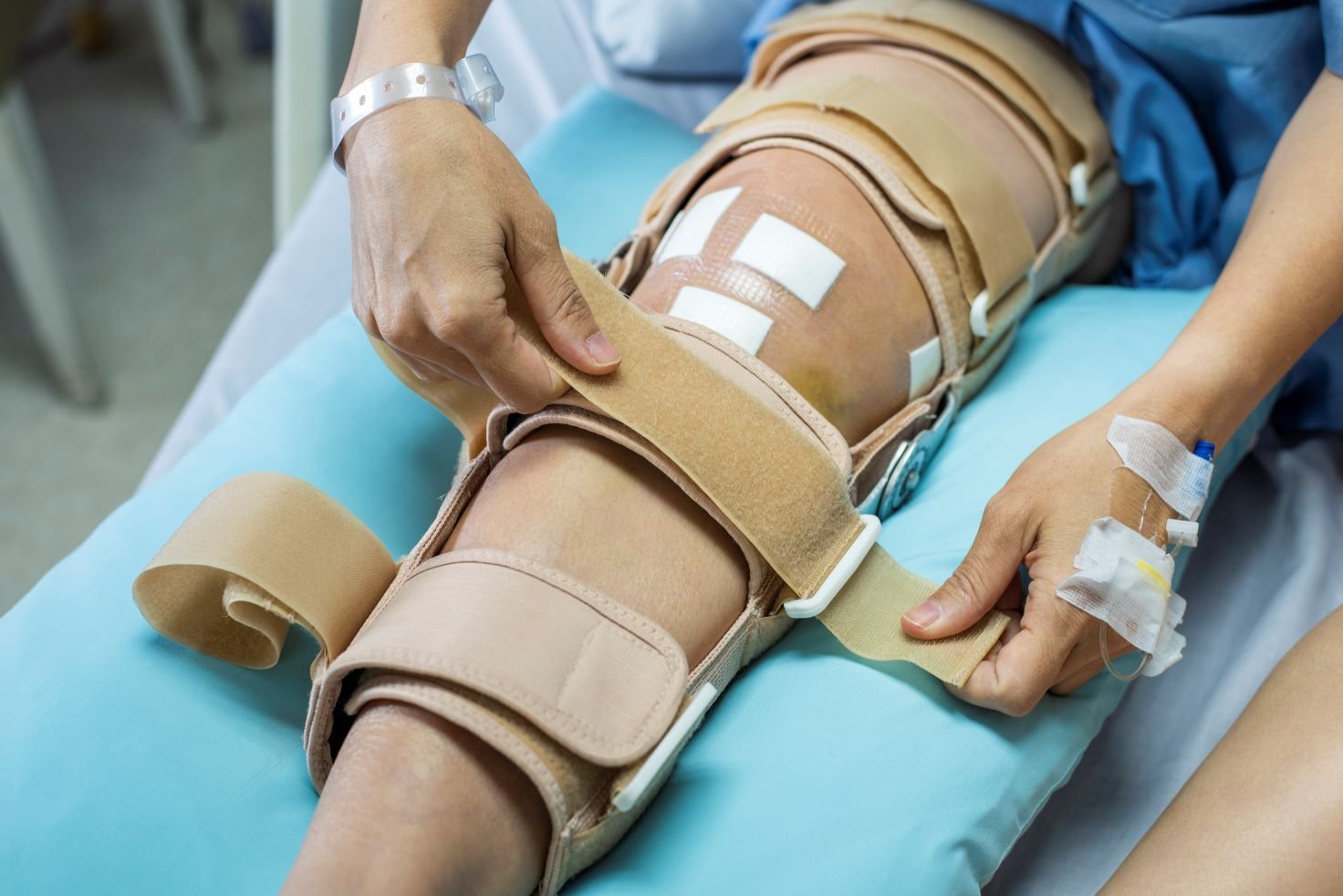Total Knee Surgery
Total knee surgery, also known as total knee arthroplasty, is a surgical procedure performed to replace a damaged or worn knee joint with an artificial implant. This procedure is often recommended to individuals suffering from severe knee pain and limited mobility due to conditions such as osteoarthritis, rheumatoid arthritis, or traumatic injury. Understanding the treatment, symptoms, and recovery process associated with total knee surgery is essential for patients considering this option.

Symptoms :
Symptoms that may indicate the need for total knee surgery include:
- Persistent Knee Pain : Chronic knee pain that persists despite conservative treatments such as medication, physical therapy, and lifestyle modifications.
- Decreased Mobility :
- Decreased Mobility : Difficulty walking, climbing stairs, or performing daily activities due to knee pain and stiffness.
- Swelling and Inflammation : Swelling around the knee joint, accompanied by warmth and redness, may indicate underlying joint damage.
- Stiffness : Difficulty bending or straightening the knee joint, leading to limited range of motion.
- Joint Instability : Feeling of the knee giving way or buckling, especially during weight-bearing activities.
- Joint Deformity : Visible deformity of the knee joint, such as bowing or deformity of the leg alignment.
Treatment
Total knee surgery is typically recommended when conservative treatments, such as medication, physical therapy, and lifestyle modifications, fail to provide adequate relief. The surgical procedure involves the following steps:
- Preparation : Before surgery, the patient undergoes a comprehensive evaluation, including physical examination, imaging tests (such as X-rays or MRI), and medical history review. Pre-operative preparation may include blood tests, medication adjustments, and lifestyle modifications.
- Anesthesia : During the surgery, the patient is placed under either general anesthesia (unconscious) or regional anesthesia (spinal or epidural anesthesia) to ensure comfort and pain control.
- Medications : Over-the-counter pain relievers may provide temporary relief from Total Knee Surgery-related discomfort. However, medications alone cannot repair a Total Knee Surgery or prevent its progression.
- Incision : The surgeon makes an incision over the knee to access the joint.
- Reshaping the Bones : The damaged portions of the knee joint, including the ends of the femur and tibia, are removed and reshaped to accommodate the artificial implant.
- Implant Placement : The artificial knee components, which typically consist of metal and plastic parts, are securely implanted into the prepared bone surfaces. The components may be cemented or press-fit into place.
- Closure : Once the implants are in position, the incision is closed with sutures or staples, and a sterile dressing is applied.
- Recovery : Following surgery, patients undergo a period of rehabilitation and physical therapy to regain strength, mobility, and function in the knee.
